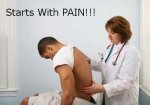Almost An Addict
|
Get Help Now! 800.815.3910 Available 24/7 The road to recovery starts here! Trusted, confidential help available 24/7. Speak with an addiction treatment specialist anytime. Please call us now at 800-815-3910! |
Almost An Addict
by Ned Wicker
(Wisconsin)
The most intriguing aspect of the new DSM-5, the standards for defining addiction and other mental disorders, is that it places the disease on a scale, from mild to severe. In the past several criteria had been listed and a person would have to demonstrate several of these criteria before being considered “addicted.” It’s a new world.
Sliding scale makes a lot of sense
The new “sliding scale” so to speak makes sense for several different reasons. Let’s look at some basic information. No two people are alike. While one person may use a drug or take a drink and suffer no ill effects from the experience, another might be overwhelmed by the substance and begin his/her downward spiral to a life of dependency.
At first glance this seems extreme because one drink doesn’t make an alcoholic, unless you consider the fact that in some people that “click” they experience is like a train rolling away from the station. Once it starts and gains momentum, it’s difficult to stop. Dr. Carlton Erickson of the University of Texas explained it something like this, the disease begins when the substance is introduced to the brain.
If you don’t introduce the substance, the process does not start. In a manner of speaking, a person is already an addict long before their first usage. The disease is waiting dormant. That’s why DSM-5 makes sense. There is no “splitting hairs” on what is, and what is not addiction.
Abuse usually builds to addiction
Once the disease is given a start, like lighting a match to start a camp fire, it will go through stages—from mild to severe. That really hasn’t changed all that much other than one important point—drug/alcohol abuse and addiction are the same. One is on one end of the spectrum and the other is opposite.
People say, “Well, a might have been a little drunk.” Or they say, “I’m not an alcoholic, I’m a problem drinker.” You are either drunk or you are sober, and you are either an addict or you are not. Naturally, some people will bristle at the notion that they are addicted, but that is a part of the denial. Some of the guesswork is taken out of the new model. It also gets rid of some of the wiggle room an addict/alcoholic might try to claim by saying, “I can handle it.”
Drunk driving is often a good indication of a problem
Not everybody who receives a drunk driving citation is an alcoholic, but chances are good that once they receive a second, third or additional citations, there is enough evidence to support that claim. Law makers like to jump on drunk driving. It is a huge problem in my home state of Wisconsin, but stricter laws and incarceration are not necessarily the obvious solutions to the problem.
Addiction/alcoholism is a disease and requires treatment if a person is going to avoid violating the laws of the highway. Incarceration; is sometimes necessary, but treatment is the more viable option to limiting subsequent offenses. Again, if addiction/alcoholism is in fact on a sliding scale, then treating the disease early in the cycle is of huge advantage. Most of the repeat offenders are convinced they can handle it.
What else is going on with this person?
Another aspect of the DSM-5 that makes sense to me is the key point of recognizing co-morbidities in diagnosing addiction/alcoholism. The question to ask, outside of the obvious, is “What else is going on?”
Are there other mental health factors that come into play when a person’s use of their drug of choice gets out of control? While a person receives treatment for their drug use, they may also need treatment for depression, or some other mental disorder, so the process of diagnosis and treatment changes with you broaden the field of possibility. One condition might be driving the other, so it is important to see the entire picture.
Still quite a bit of debate
The one area where DSM-5 is not entirely complete is in determining the criteria for addiction, which is still the domain of psychiatrists and that is being challenged by members of the medical/scientific community. The criteria are broader, but the disciplines involved in determining the criteria are not. This will be an ongoing debate, but one worth having.
A sliding scale of what constitutes addiction is a right step forward in helping diagnose and treat the disease. The old DSM-IV model was outdated and in need of revision. As the science continues to advance, it will be interesting to see if the DSM-6, whenever that happens, is another radical departure from the old accepted norms.
Comments for Almost An Addict
|
||
|
||
and Finally Remember:
“Ask and it will be given to you; seek and you will find; knock and the door will be opened to you. For everyone who asks receives; he who seeks finds; and to him who knocks, the door will be opened.”
– Matthew 7:7-8
Recent Articles
-
Drug Addiction Intervention
Jul 10, 17 08:44 AM
Drug Addiction Intervention is a process that allows the family and friends of an addict to help convince them to go into treatment and the seriousness of their addiction problem.
-
Opiate Addiction Facts
Jul 08, 17 08:22 AM
Opiate Addiction Facts are the reasons drug addiction and alcoholism effects everyone of us even if we don’t know it.
-
Drug Addiction Recovery
Jul 07, 17 08:40 AM
Drug Addiction Recovery is different for each individual and can be either a smooth, steady path, or a seeming endless cycle of using and not using. Find out why.
Follow on Twitter or Google+

